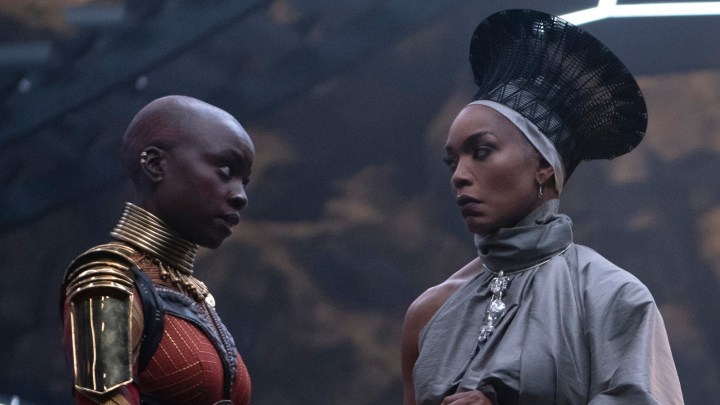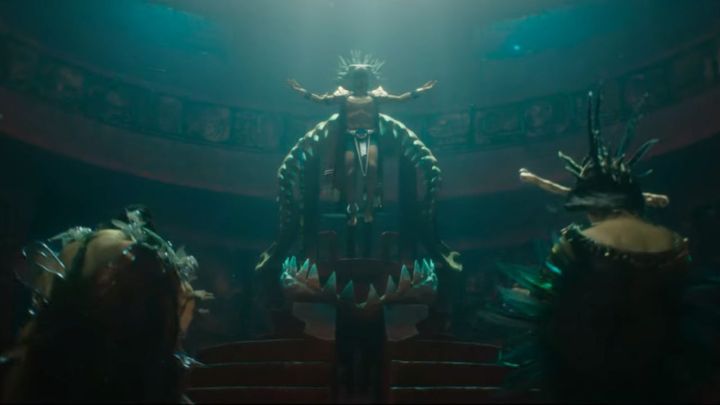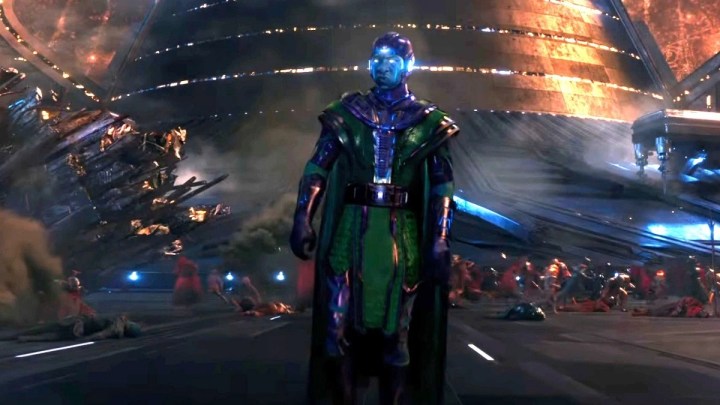The once mighty Marvel brand has taken a beating recently. While the studio’s latest movie, Ant-Man and the Wasp: Quantumania, broke records and grossed over $120 million in its opening weekend, it received generally negative reviews from critics and audiences alike, and the subsequent weekends saw dramatic declines in attendance. The Paul Rudd/Jonathan Majors threequel is the rare Marvel movie to make less than its predecessors, and a few outlets, including Variety and Digital Trends, openly questioned the value of the brand. Is Hollywood’s most successful studio finally experiencing audience fatigue?
That question was surprisingly answered, sort of, by Disney’s CEO Bob Iger, who recently gave a speech at the Morgan Stanley Technology, Media and Telecom Conference. In regards to Marvel, Iger said that “sequels typically worked well for us. Do you need a third and a fourth, for instance? Or is it time to turn to other characters?” It’s a rhetorical question, of course, as the highly respected executive is openly questioning Marvel’s largely profitable strategy of pumping out threequels (from 2013’s Iron Man 3 to last month’s Quantumania) and the odd fourquel (2022’s terrible Thor: Love and Thunder). But is he right? And if he isn’t, what should Marvel’s approach be after suffering a rare, and very public, failure?
Is Iron Man 4 now off the table?

Taking Iger’s comments at face value, it’s clear that he is referring to the disappointing performance of the third Ant-Man movie. A lot of people questioned the need for a third Ant-Man movie even before Quantumania opened, and the tepid reception seemed to confirm those early fears.
Does this mean no more sequels for other popular Marvel characters? Iron Man is dead, sure, but the multiverse can bring anyone back; just look at Loki and his terrific sci-fi Disney+ show. Is Iron Man 4 starring an alternate Tony Stark now impossible? Ever since his disastrous 2020 big-budget flop Dolittle, Downey has been laying low, preferring to produce such high-profile hit TV shows like Perry Mason (now back for a second season on HBO Max) and Sweet Tooth, which is the rare comic book adaptation hit to get a second season on the cancel-hungry streamer. It’s not hard to imagine the actor returning to a role that a.) he clearly loved playing and b.) audiences loved watching him in.
In fact, let’s imagine it. Like pretty much every Marvel comic book character, the Tony Stark version of Iron Man has had many iterations throughout the years. There are too many to list without this devolving into a comic book nerd wormhole, but it’s not too hard to imagine Downey Jr. portraying Iron Man Noir (set in an alternate universe with Iron Man living in the 1940s) or an Iron Man who becomes the Sorcerer Supreme.

Hell, it’s plausible that the actor can portray Arno Stark, a future relative of Tony’s who is commonly known to fans as Iron Man 2020. Just imagine what a feature film version of this could look like with Downey as Arno with a visionary director like Denis Villeneuve helming a cyberpunk take on the character. Through the intertwining miracles of the Marvel multiverse, CGI that can shave off decades of age, and a star whose box office record had been awful since his exit from the MCU, anything is possible, so Downey returning as Iron Man doesn’t seem too far-fetched. But if Iger has his way, Iron Man 4 would be a non-starter; Tony isn’t a new character, and Iron Man 3 wasn’t as embraced by critics and audiences as the first Iron Man.
Wakanda … never? Why Black Panther 3 should still happen

And what about a sequel far more likely, like Black Panther 3, which has already been teased by lead star Letitia Wright? The first, and so far only, sequel to Black Panther, Wakanda Forever, made over $850 million at the worldwide box office and gave Marvel its first-ever acting Oscar nomination for Angela Bassett’s fierce performance as a grieving and fiery Queen Ramonda. Less high profile, but just as impressive, are the other nominations the movie garnered for Best Costume, Best Song, Best Makeup, and Best Visual Effects. It’s obvious, but I’ll point it out anyway: these nominations were all for a sequel. In his efforts to preserve the Marvel brand, is Iger killing his golden goose?
Technically, Black Panther: Wakanda Forever committed the same sins as Ant-Man and the Wasp: Quantumania: both films made less money than their predecessors; fans were less happy with these follow-ups than the originals; and critics were less enthused about these installments than previous one.
Yet what separates the sequel to Black Panther from Quantumania is that it opens up the MCU to more intriguing narrative possibilities while also honoring what audiences loved about those characters in the first place. It was always going to be impossible for Marvel and director Ryan Coogler to match the original’s impact due to Chadwick Boseman’s unfortunate passing and the first-of-its-kind nature that Black Panther possessed when it was released in February 2018.

So instead of trying to mimic the original, they decided to expand the reach of Wakanda by introducing Namor and his underwater kingdom as compelling and sympathetic antagonists, giving Ironheart a spotlight to shine, and emphasizing the power and intelligence of Wakanda’s women leaders and warriors. Wakanda Forever did what all sequels should do: expand what was built on in the original and introduce just enough new elements to make things interesting. When the credits rolled after the movie, I wanted more, a feeling I didn’t have at all after Quantumania mercifully ended.
All that progress and thoughtful worldbuilding would be for naught if Black Panther 3 is canned due to Iger’s new “no sequel” edict. Shuri’s continuing evolution as the new Black Panther, Nakia’s newly discovered role as the mother of T’Challa’s son, and a Wakanda without Ramonda and facing the ongoing threat of Namor won’t be explored on a big canvas, and the small screen is too, well, small, to consign these characters and storylines to a six-episode Disney+ series. The Black Panther franchise shouldn’t pay the price for Ant-Man 3‘s failures and should be allowed a theatrical platform to explore the narrative seeds it planted in the first two movies.
The way forward for the MCU

In his efforts to defend one of Disney’s prized assets, Iger stressed that all is well with the MCU. “There’s nothing in any way inherently off in terms of the Marvel brand,” Iger said. “I think we just have to look at what characters and stories we’re mining, and you look at the trajectory of Marvel over the next five years, you’ll see a lot of newness. We’re going to turn back to the Avengers franchise, but with a whole different set of Avengers.”
Iger is not entirely wrong here; it’s always valuable to add new characters to the mix to keep everything fresh. Yet new characters aren’t the antidote to what’s ailing Marvel; after all, no one wants to see a D-Man movie or a mini-series chronicling the Great Lakes Avengers. [Editor’s note: I’d actually love to see a Great Lakes Avengers series, but I fully realize this is a niche interest that few, if any, share.] It would be in Marvel’s best interest to look at what has worked in the past and make movies, whether they are originals or fourth and fifth installments, that stay true to what made those characters so appealing in the first place.
And no, that doesn’t just mean more Avengers movies either. It’s not the fact that Ant-Man got a second sequel that is inherently wrong; it’s just what Marvel decided to do with him that proved to be a disaster. Marvel forgot that Ant-Man works best when the stakes are smaller rather than huge. The first two Ant-Man films had a charm about them because the world, let alone the multiverse, wasn’t at stake; instead, it focused on Scott’s desire to be a better man and a better father to his young daughter. In their zeal to expand the multiverse and promote Kang as a Thanos-level bad guy, Marvel sacrificed a character and IP that didn’t need really need to change.

So who gets to decide which movie gets a sequel and which hero is worthy enough to warrant a feature film showcase? Well, Iger, of course, and Kevin Feige and all the top Marvel brass, but fans, if they are vocal enough, can have their say, too. Personally, I want an Iron Man 4, a Black Panther 3, and a Shang-Chi 2. And even though I was lukewarm on their previous installments, I can be down with an Eternals 2 or even a Thor 5 as long as Marvel stays true to their characters and doesn’t make them something they aren’t.
I know I keep repeating myself here, but it bears constant repetition as I think Marvel is learning the wrong lesson here. It’s not sequels to B-grade characters that’s the problem; it’s what they are doing with them that is. Don’t make an Ant-Man threequel that’s really a low-rent Fantastic Four movie in disguise and don’t make a Thor fourquel that shows contempt for the characters. The MCU worked, and it worked for a long time because there was enthusiasm and respect for the source material. That‘s what’s been lost, and that’s what Iger should fix if the MCU has any chance at a stable future.
Editors’ Recommendations
Services Marketplace – Listings, Bookings & Reviews